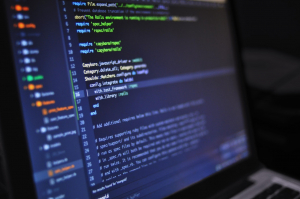Too much work can stress out any machine and the same goes with the humble CPU. You must have noticed various hiccups in your overtaxed CPU, and then that could be a red flag to pay attention to. With the help of server administration services, technology specialists can track out when and where the slowdown happens and when to rectify the same. For a start, if you notice a sign of a computer malfunctioning at any point, you need to be ready for a detailed processor checkup.
Are you facing situations where the applications get paralyzed halfway through and then suddenly shut down? Has your cursor acted weird with rapid jerks to unknown corners of your screen? Or probably your system fan gears up for a sudden buzz and you notice that the machine heats up without any warning? Well, these are the first signs that your workstation is kind of getting overloaded. So, is it only wise that you stop ignoring the symptoms and approach the server administration services of respectable companies to make good of the technical flaws?

Reduce multiple program usage
Whether you are in a company or even if you are working alone, there may be situations where people have to work on multiple programs. This needs to be avoided to the maximum, as it would eat into a considerable amount of CPU juice if all have to work well. Over time, that would diminish the power and stability of the CPU strength.
Check background processes
When a computer or laptop is switched on, there will be a lot of background software and processing going on. This can overtax the CPU making it slow down eventually. With the assistance of professional server management services, companies can check how many uploads and downloads are taken silently, even if you actually do not open any particular tool or software. You can find them in the Start Tab, uncheck the ones you do not want, restart the computer and see the system regain speed. You can also go to the Start, and then click on Task Manager. Here, you will see a list of processes that work behind the scene. It is best to disable the ones that you do not use./ For this, just click End process and that will reduce the strain on the CPU.
Defragment of the hard disk
The hard disk is like a massive bin where all the data accumulates. In a computer, when you store, update, delete or upgrade anything that is required in the computer; they find a place in the hard drive. So, the more you work on the computer, it will be bound to be cluttered over time. For this, defragment the drive and ease the pressure within it. This defragmentation process is not to be handled by novice users unless you are well-versed in the development. The entire process can take minutes or hours, depending on the amount of clutter you have selected to be erased from the drive.
Antivirus can be a problem
If you are wondering what an anti-virus can do, we would say yes. It is true that this was installed on the computer to prevent any cyber-attacks, and for data privacy and protection. This process is done however like a 24-hour patrol can that keeps watching for any hidden intruders nearby. So, that overworks the CPU. Under the supervision of server management services, you can check if your device is too old for the anti-virus and how far is the software eating into the processor strength. For this, our experts do a couple of background checks to find all the antivirus tools that work in the background and prevent them from straining the machine.


Leave A Comment